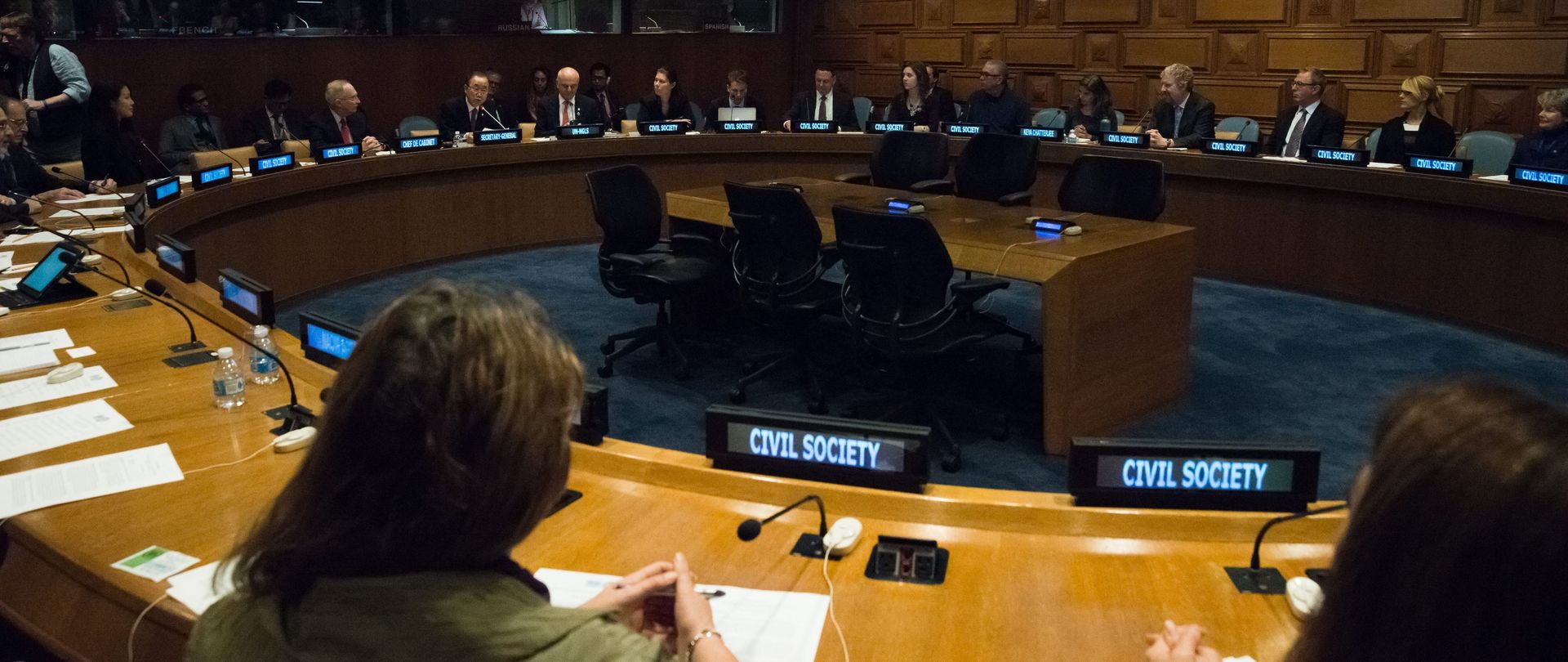
© picture alliance / Pacific Press | Albin Lohr-Jones

© picture alliance / Pacific Press | Albin Lohr-Jones
For more than 20 years, the UN and its agencies have been working by means of partnerships with actors from both civil society and the private sector. In the context of the 2030 Agenda for Sustainable Development, member states renewed their commitment to partnerships. SDG 17 on “Partnerships for the Goals” posits effective partnerships as a central means of implementation. Despite their abundance and presence, partnerships continue to receive critique for their lack of clarity regarding actual contributions to sustainable development. For this reason, the UN aims to provide better guidance for partnerships and to increase their transparency and accountability. To this effect, the Department of Economic and Social Affairs (DESA) established an online platform and registry for “Partnerships for SDGs” and organizes annually the ECOSOC Partnership Forum and the HLPF Partnership Exchange.
From 2006 to 2017, a research project in the context of the collaborative research center SFB700, “Governance in Areas of Limited Statehood,” funded by the German Research Foundation, explored multistakeholder partnerships in greater depth. During the first two funding phases, this research focused on the success conditions for – and the effectiveness of – partnerships for sustainable development. In 2006–2009, the team conducted research on 21 transnational partnerships operating in the areas of the environment, health, and social policy. In 2010–2013, the research team delved deeper into selected partnerships by conducting field research on their operations in fragile areas in South Asia and East Africa. In the third phase of the project, 2014–2017, the SWP team researched if, and to what extent, different actors – from the UN to donors, funders, governments, and private initiatives – draw upon previous partnership experiences when designing and implementing the framework conditions for new partnerships related to the SDGs, referred to as “meta-governance.” You will find the publications and information on further activities in this dossier and on the project’s website.
Political will as a critical condition for implementing the sustainable development goals
doi:10.1016/j.esg.2025.100244
Bilateral Cooperation as Catalyst for the UN Climate Process
doi:10.18449/2024C31
It could become the world’s largest free trade area. As a condition for the EU’s unilateral requirements, the Mercosur countries are now demanding cooperation and trade benefits – rightly so, and it will set an example for other agreements, say Bettina Rudloff and Tobias Stoll.
Analysing political will as a critical element of the Mid-Term Review of the 2030 Agenda and the SDGs
doi:10.18449/2023RP07
The final conclusion of the EU-Mercosur Agreement has been pending for more than three years. For some EU states, the sustainability measures do not go far enough. Unilateral EU approaches such as the regulation for deforestation-free supply chains can provide relief – but they carry risks, say Bettina Rudloff and Tobias Stoll.